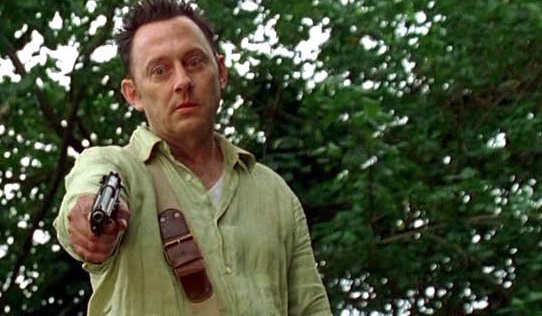Growing up, I constantly heard about the classic “water cooler moment” that set the cultural conversation each week. Too young to enjoy The Sopranos or Seinfeld on a weekly basis, Lost was my introduction to television fandom and mass-collective viewership. Finally, I was in on the conversation, just instead of the water cooler, it was huddled in a classroom or on the quad at lunch.
The emotional characters and crazy lore at the heart of the island had me coming back each week, but one aspect of Lost that especially captured my attention was it’s seemingly improvised structure. Yes, there is clearly a through-line that connects the series pilot to the grand finale 121 episodes later, but much can be said about the show’s “random” quality.
Obviously, the show’s loose structure isn’t wholly a benefit for the show. A lot of interesting plot threads were dropped out of nowhere while obscure, unnecessary ideas – hello time travel – were added towards the end just to seemingly increase the show’s complexity. No matter how many negative think pieces could be written focusing exclusively on the detriments of improvisation in the Lost writer’s room, the fact of the matter is, without the show’s loose, free-wheeling structure, fans would have never been able to meet one of the most interesting characters in 21st century television: Ben Linus.
Originally, Michael Emerson was only cast for three guest appearances for the show’s second season, but the creators decided to keep him on board after seeing Emerson bring Ben to life. His mysterious, quiet performance as an island inhabitant who was captured and poses as Henry Gale, a survivor of a hot air balloon crash, leads to a deeper mystery about secret organizations and scientific experiments run amok. A quiet, contemplative man who seems to understand the island’s hidden secrets, he serves as both a wise and cruel leaders of “The Others,” someone willing to do anything to protect his people and the society they’ve established.
Moving forward, Ben quickly became more than just a random actor on the island, he became one of Lost’s central forces. More than almost any other human character the show focuses on, Ben’s actions and decisions have huge impacts on everyone present on the island. In the second and third seasons, he is the closest thing the series has to a villain, literally capturing the three main characters – Jack, Kate and Sawyer – and keeping them in cages between bouts of random torture. For once, the survivors of Oceanic Flight 815 had to worry about other humans just as much as finding food or outmaneuvering a spooky smoke monster.

Even after the character’s central place in the show is established, Lost’s loose structure allowed his role to shift to fit the series’ needs. Instead of being portrayed as an ominous antagonist throughout all six seasons, he becomes more morally ambiguous and aligned with the core characters as the battle between the Man in Black and Man in White comes more sharply into view. Thanks to flashback episodes that touch on his rough childhood and long history with the island – making him significantly more empathetic in the process – viewers can see that he’s not necessarily a bad person, he’s just a calculating individual who has no problem performing malicious deeds to achieve what he considers to be the just goal of protecting the island.
Had the show never introduced Ben, nor had him kidnap the three protagonists, it’s likely Lost also would have never introduced the character of Juliet, another “Other” who is first shown torturing Jack before becoming an integral member of the group and developing a romantic relationship with Sawyer years later. Again, had the series not been so willing to explore new ideas and take Ben in unexpected directions, many other key elements of the series, like the ageless Richard Alpert and physically moving the island, might never have been introduced.
The only reason Ben Linus is such a memorable character, and someone who was important right up until the series finale, is because the creators of Lost felt comfortable pivoting and letting their story wander off a bit. In short, Ben is a happy accident. Had things been fully planned from the beginning, Emerson wouldn’t have been able to prove himself worthy of carrying so much of the show’s mythos on his back, and the series would have been far less memorable because of it. Don’t get me wrong, there’s a lot to make fun of in Lost no matter how much I love it, but it did give fans one of the most menacing, conflicted villains on network TV in quite a while.









